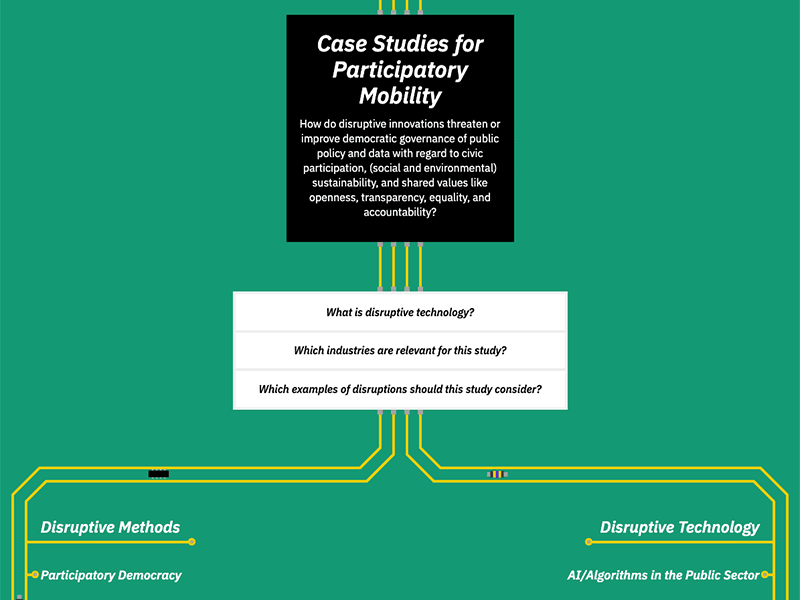Which factors influence the adoption and integration of disruptive technologies (e.g., simulation and prediction models, mapping, data analysis) in public decision-making processes? The Horizon 2020 project URBANITE approaches this question through the lens of municipal efforts to develop local mobility data ecosystems that integrate various datasets and disruptive technologies. Our findings are relevant for all decision-makers (e.g., policymakers and civil servants) working with data-driven and disruptive technologies in public administrations.
Waag and the City of Amsterdam researched citizen participation in shaping Amsterdam's approach to bike mobility and data. Citizens, policymakers, and other stakeholders rethought mobility data governance and co-created the development of an open-source online mobility data ecosystem.
To gather the lessons and recommendations based on the URBANITE experiences, Waag conducted a co-creation workshop and internal interviews with the URBANITE partners and invited them to reflect on their experiences, the challenges they faced, and the lessons they learned throughout the project.
We identified several necessary steps, priorities and requirements for building an integrated mobility data ecosystem comprised of disruptive, data-driven technologies, which each carry their own specific challenges. These recommendations are meant to help people who work with disruptive, data-driven technologies in a way that improves human decision-making and is worthy of public trust.
Read here the whole policy brief in which we further explicate our challenges, lessons, and recommendations:
Recommendations
The necessary steps are:
· Identify the need for data and use / development of disruptive technologies
· Gain awareness of existing data
· Access existing data
· Ensure quality, cleanness, completeness, and accuracy of data
· Meet interoperability standards
Challenges in each of the above steps must be met before technical development of a larger data ecosystem can proceed. In addition to the challenges faced in these steps, there are also challenges in meeting other requirements such as ethical concerns around the development and use of technology in public decision-making. These requirements include:
· Human decision-makers (e.g., policymakers and civil servants) must understand
and scrutinise the implications and limitations of technological outputs (e.g., data visualisations, models, and predictions).
· The use of data and disruptive technologies must be compatible with relevant laws and public values (e.g., regarding privacy and transparency).
· Technological outputs must be relevant for and usable by decision-makers.
· Technological outputs must be explainable to the extent that the steps of reasoning, sources, and considerations that lead to a recommendation or prediction must be able to be reproduced and validated by humans.
· Use of the technology must merit and earn trust by citizens, decision-makers, and other stakeholders.
Our recommendations for local policymakers are presented in the form of design process priorities. These design process priorities include:
· Participatory development
· Identification of a shared mission
· Modular and iterative development
· Open (standards / source / process)
· Education


